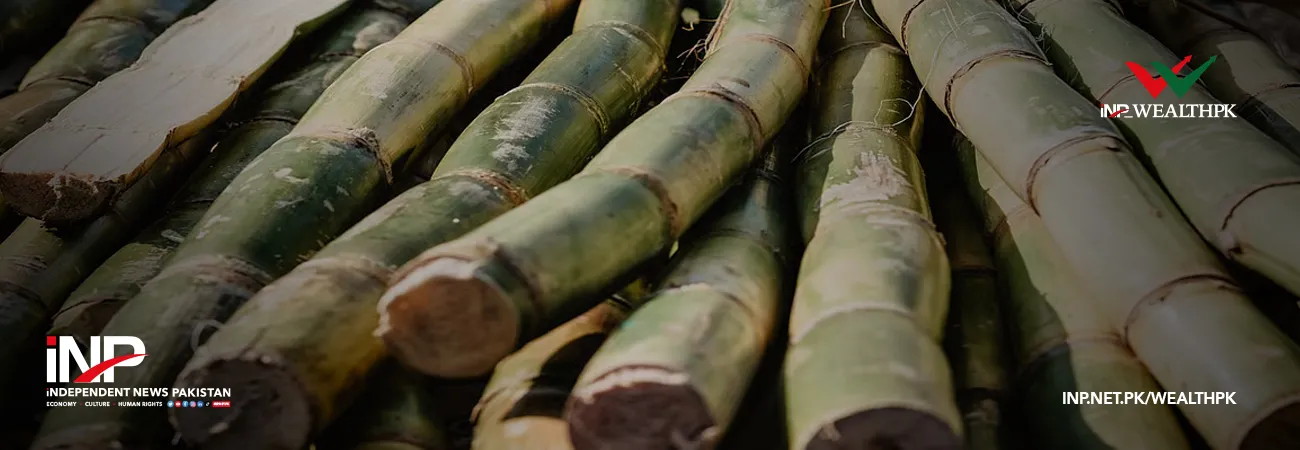INP-WealthPk
By Raza Khan ISLAMABAD, Oct 26 (INP-WealthPK) – China-Pakistan Economic Corridor (CPEC), a flagship project of the Belt and Road Initiative (BRI), has provided jobs to around 80,000 Pakistanis during the first phase of infrastructure development. This is just the beginning, as the best of CPEC is yet to unfold in terms of job opportunities for the Pakistani youth. The employment bonanza has already started as CPEC enters its second phase of industrialization and Chinese investors are keen to establish their industrial units in Pakistan, especially in the Special Economic Zones (SEZs) being established in various cities, some of which have already been made operational. Khalid Mansoor, Special Assistant to the Prime Minister on CPEC, told WealthPK that CPEC is one of the most important projects for China and Pakistan. “CPEC is the project that will revive the economy of Pakistan,” Khalid said. He said during the first phase of CPEC, around 80,000 people in Pakistan got jobs, some of which are temporary. “Chinese and Pakistani companies hired people for a certain period of time for the construction of roads and energy projects,” Khalid maintained. Although these temporary jobs ended after the service periods came to an end, the Pakistani workers obtained numerous professional advantages that would help them secure more jobs in the future. “Working with the Chinese experts and technicians has helped Pakistani workers to learn modern skills and techniques,” the special assistant maintained. He said CPEC’s phase two would provide many opportunities for the local and foreign investors. “The people of Pakistan will also have massive job opportunities once the industrialization process picks momentum,” he added. Mansoor said the Chinese investors had already set up their industrial units in the Special Economic Zones of Lahore and Faisalabad where thousands of local people had got jobs. More Chinese investment is in pipeline in the mobile phone manufacturing, textile, pharmaceutical and chemical sectors. “These Chinese investors need thousands of skilled workers here in Pakistan to operate their manufacturing units,” Khalid said. He said nine more Chinese companies had been allotted land in Allama Iqbal Industrial City, Faisalabad and in Lahore last month and they would be running factories soon. When asked about the number of jobs CPEC would generate, Khalid said it was something that could not be precisely measured. “I cannot tell you the exact numbers but surely it would be huge,” he said, adding that CPEC was a long-term project and would create opportunities for both sides during the next decade and thereafter. Responding to question concerning the unskilled labour in Pakistan, Khalid said special attention was being paid to skill enhancement of the local labour. He added that a state-of-the-art vocational training institute had been set up in Gwadar with a grant of $10 million provided by China. The government is planning to establish more vocational training institutes in the Special Economic Zones under the umbrella of CPEC in a bid to train maximum people to meet the demand of skill labour by CPEC projects, Khalid informed. He said the industrialization phase would also improve the supply chain in Pakistan. “Chinese investors in Pakistan will also require housing, hotel services, food, clothing and other necessities of life, which will provide an opportunity to the local businessmen to flourish their businesses.” Underlining the importance of CPEC for uplifting the agriculture sector of the country, Khalid said Pakistan was an agricultural country and its economy depended on development of the agriculture sector. Chinese investors had already started cooperation in the agriculture sector. Chinese agricultural experts, he added, are working on hybrid rice, cauliflower, soil research, seeds, pesticides and fertilizers. He said as a Memorandum of Understanding (MoU) for establishment of a Joint Working Group (JWG) on Information Technology Industry was signed by both sides during the 10th meeting of the Joint Cooperation Committee (JCC) on CPEC, Chinese cooperation in the IT sector would generate thousands of jobs for the IT graduates in Pakistan. He said cooperation in the tourism sector in the future would also be significant in terms of investment and jobs. It is pertinent to mention that earlier on October 01, the first ever Pakistan-China technical vocational institute was inaugurated in Gwadar. Addressing the inaugural ceremony, Chinese Ambassador to Pakistan, Nong Rong, said the institute had been completed at a cost of $10 million in only 20 months. He said the institute had the state-of-the-art machinery and laboratories and the students would be provided scholarships and free accommodation during training. He said at least 1000 student would be educated at the institution annually.





